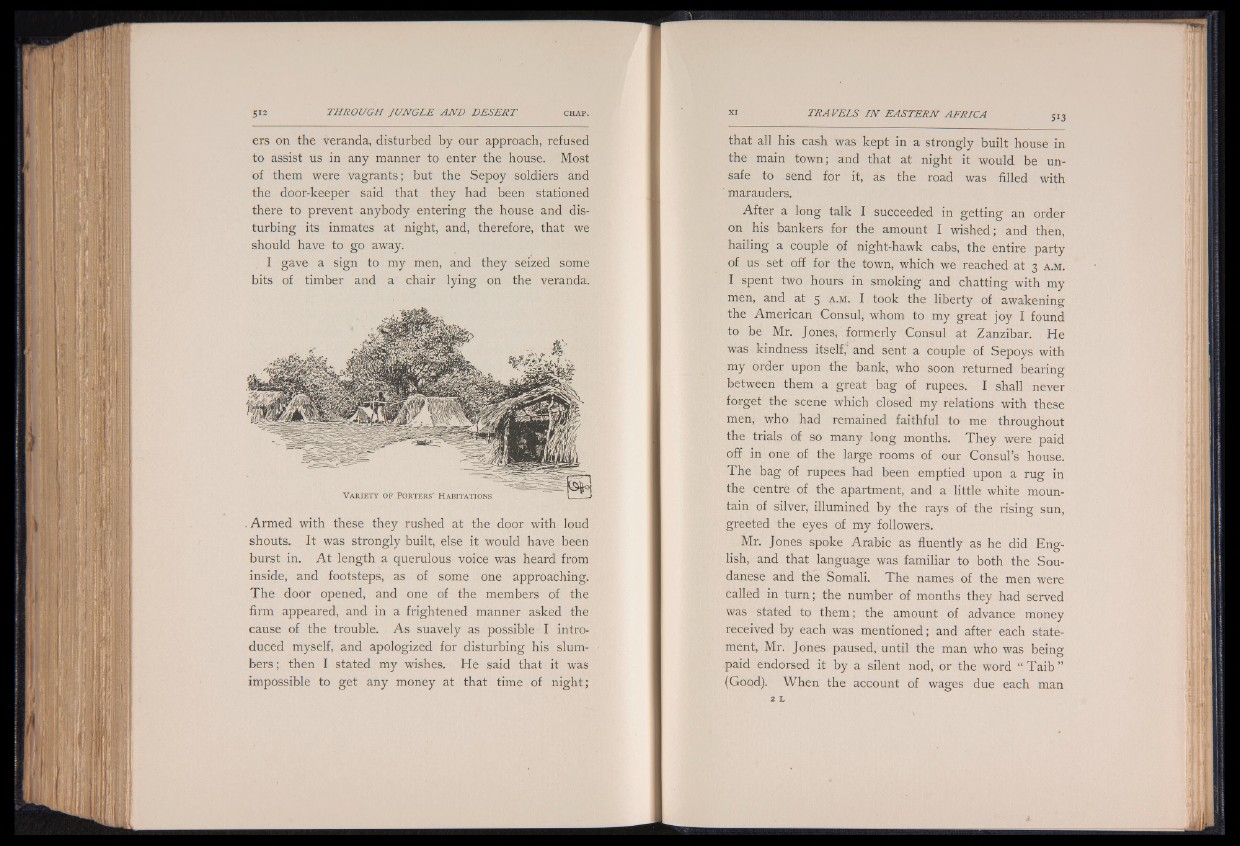
ers on the veranda, disturbed by our approach, refused
to assist us in any manner to enter the house. Most
of them were vagrants; but the Sepoy soldiers and
the door-keeper said that they had been stationed
there to prevent anybody entering the house and disturbing
its inmates at night, and, therefore, that we
should have to go away.
I gave a sign to my men, and they seized some
bits of timber and a chair lying on the veranda.
Armed with these they rushed at the door with loud
shouts. It was strongly built, else it would have been
burst in. A t length a querulous voice was heard from
inside, and footsteps, as of some one approaching.
The door opened, and one of the members of the
firm appeared, and in a frightened manner asked the
cause of the trouble. As suavely as possible I introduced
myself, and apologized for disturbing his slumbers;
then I stated my wishes. He said that it was
impossible to get any money at that time of night;
that all his cash was kept in a strongly built house in
the main town; and that at night it would, be unsafe
to send for it, as the road was filled with
' marauders.
After a long talk I succeeded in getting an order
on his bankers for the amount I wished; and then,
hailing a couple of night-hawk cabs, the entire party
of us set off for the town, which we reached at 3 a .m .
I spent two hours in smoking and chatting with my
men, and at 5 a .m . I took the liberty of awakening
the American Consul, whom to my great joy I found
to be Mr. Jones, formerly Consul at Zanzibar. He
was kindness itself,‘ and sent a couple of Sepoys with
my order upon the bank, who soon returned bearing
between them a great bag of rupees. I shall never
forget the scene which closed my relations with these
men, who had remained faithful to me throughout
the trials of so many long months. They were paid
off in one of the large rooms of our Consul’s house.
The bag of rupees had been emptied upon a rug in
the centre of the apartment, and a little white mountain
of silver, illumined by the rays of the rising sun,
greeted the eyes of my followers.
Mr. Jones spoke Arabic as fluently as he did English,
and that language was familiar to both the Soudanese
and the Somali. The names of the men were
called in turn; the number of months they had served
was stated to them; the amount of advance money
received by each was mentioned; and after each statement,
Mr. Jones paused, until the man who was being
paid endorsed it by a silent nod, or the word “ T a ib ”
(Good). When the account of wages due each man